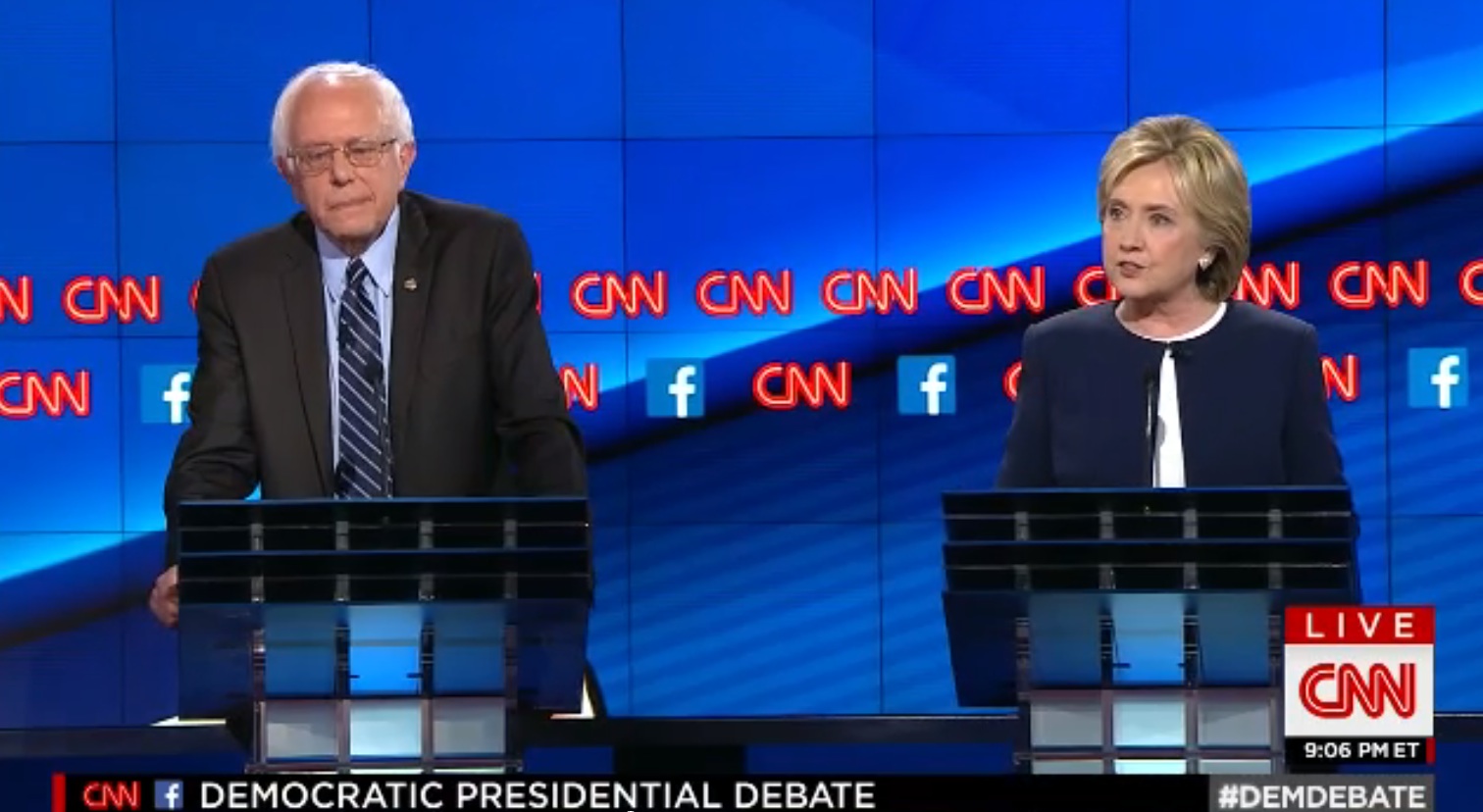After a bizarrely dramatic preliminaries—including Sheryl Crow singing the national anthem—the Democratic debate got into the nitty-gritty issues right off the bat. Moderator Anderson Cooper clearly wanted to talk about hazy “electability” issues, asking Hillary Clinton about flip-flopping and and Bernie Sanders if his self-identification as a socialist means he opposes capitalism. But the candidates weren’t having it, refusing to speculate on their electability and instead trying to focus on issues of experience and policy.
But Sanders in particular was able to flip the question on its head, defining “democratic socialism” as opposition to concentrating the majority of wealth into the hands of the economic elite. He cited Denmark as a country whose policies he admires and calling modern American capitalism “casino capitalism.”
At this point, Clinton jumped in, pulling the discussion away from electability speculation entirely and directing the conversation to the larger and more interesting question of what the Democratic relationship to capitalism should be. Without taking Cooper’s bait to identify herself as a capitalist, Clinton suggested that controlled capitalism is a good economic system, pointing to small businesses as the ideal of what the system can create. But she then agreed with Sanders that the system is out of control and that she wants to “save capitalism from itself.”
The exchange was a fascinating one, because it demonstrated that, despite the hysteria over words like “socialism” and “capitalism,” Sanders and Clinton actually have more in common than not: A desire for an economy that encourages both entrepreneurship while not allowing a handful of people to suck up all the wealth and economic opportunities for themselves.
The reality is the difference is not that big between democratic socialism capitalism with a robust social safety net and hard limits on capitalist excesses. This exchange illustrated that nicely.
But what was really fascinating was it showed how much progressive organizing and the popularity of Sanders in particular has had on not just this campaign, but on the way society in general feels about these issues. As much as Cooper wanted to make “socialism” a dirty word, neither Sanders nor Clinton took the bait. Instead of treating this as an opportunity to tar Sanders as some kind of radical, Clinton emphasized how many views she shares with him about income inequality and economic opportunity. Perhaps the word “socialist” isn’t as toxic as it used to be. Either way, it was nice to see a debate where people got past dithering about semantics and instead got down and dirty, as much as they can in the limited debate format, about the actual issues that voters care about.

